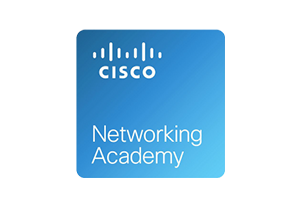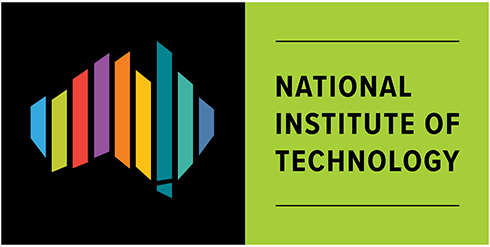
ICT60220
Advanced Diploma of Information Technology (Telecommunications Network Engineering)
The Advanced Diploma of Information Technology (Telecommunications Network Engineering) course at the National Institute of Technology is designed to prepare you with the skills and knowledge required for telecommunication network planning. You will work on simulated telecommunication projects that will include project initiation, scoping, planning, and designing telecommunications transmission network architectures.
- Course CRICOS Code: 105264C
- Delivery Mode: Face-to-face (classroom based)
- Location: Perth City
- Duration: 52 Weeks including breaks
Course Package
Available
Package any Diploma of Information Technology specialisation with Telecom for double qualification and double career outcomes.
ICT50220 - Diploma of Information Technology (Advanced Networking / Cyber Security / Web Development)
Course CRICOS Code: 105263D
ICT60220 - Advanced Diploma of Information Technology (Telecommunications Network Engineering)
Course CRICOS Code: 105264C
ICT60220 - Advanced Diploma of Information Technology (Telecommunications Network Engineering)
Course CRICOS Code: 105264C
ICT5022ICT50220 - Diploma of Information Technology (Advanced Networking / Cyber Security / Web Development)
Course CRICOS Code: 105263D
Course Package
Available
Package any Diploma of Information Technology specialisation with Telecom for double qualification and double career outcomes.
Package Duration
The duration of both courses packaged together is 104 weeks (2 years).
Package Career Outcome
• Telecommunications Network Planner (ANZSCO 313213)
• Telecommunications Technical Officer (ANZSCO 313214)
Package Visa Outcome
Students are eligible for Temporary Graduate visa (subclass 485) Graduate Work stream.
Course Package
Available
Package any Diploma of Information Technology specialisation with Telecom for double qualification and double career outcomes.
ICT30519 - Certificate III in Telecommunications Technology
Course CRICOS Code: 113299C
Duration: 52 weeks
OR
ICT50220 - Diploma of Information Technology (Advanced Networking / Cyber Security / Front End Web Development)
Course CRICOS Code: 105263D
Duration: 52 weeks
ICT60220 - Advanced Diploma of Information Technology (Telecommunications Network Engineering)
Course CRICOS Code: 105264C
Duration: 52 weeks
Course Package
Available
Package any Diploma of Information Technology specialisation with Telecom for double qualification and double career outcomes.
ICT5022ICT50220 - Diploma of Information Technology (Advanced Networking / Cyber Security / Web Development)
Course CRICOS Code: 105263D
Duration: 52 weeks
OR
ICT50220 - Diploma of Information Technology (Advanced Networking / Cyber Security / Web Development)
Course CRICOS Code: 105263D
Duration: 52 weeks
ICT60220 - Advanced Diploma of Information Technology (Telecommunications Network Engineering)
Course CRICOS Code: 105264C
Duration: 52 weeks
Package Career Outcome
• Telecommunications Network Planner (ANZSCO 313213)
• Telecommunications Technical Officer or Technologist (ANZSCO 313214)
Package Visa Outcome
Students are eligible for Temporary Graduate visa (subclass 485) Graduate Work stream.
Course Overview
The Advanced Diploma of Information Technology (Telecommunications Network Engineering) course at National Institute of Technology is designed to prepare you with the skills and knowledge required for telecommunication network planning.
This course will help you equip with skills and knowledge in several telecommunications network engineering aspects such as:
- designing telecommunications network architectures
- planning transmission networks
- planning, managing and troubleshooting advanced integrated IP networks
- managing network traffic
- determining best-fit topologies for wide-area networks
- evaluating regulations and legislation in the telecommunications sector
You will work on simulated telecommunication projects that will include project initiation, scoping, planning, and designing telecommunications transmission network architectures.
Career Prospects
Job roles and titles vary across different industry sectors. Possible job titles relevant to this qualification include:
- Telecommunications Network Planner
- Telecommunications Network Designer
- Telecommunications Technical Officer
The demand for Telecommunications Engineering Professionals grew very strongly over the past 5 years and is expected to grow very strongly over the next five years. The number of Telecommunications Engineering Professionals is likely to increase from 13,100 in 2020 to 15,200 by 2025*.
* www.joboutlook.gov.au. Job Outlook is an initiative of the Australian Government National Skills Commission. Job Outlook provides information about Australian careers, labour market trends and employment projections. Accessed on 28 Oct 2021.
Entry Requirements
- Age:
- Domestic students must be 16 years or above at the time of application to study at NIT.
- International students must be 18 years or above before commencement of study at NIT.
- Academic
- To check the academic entry requirements, refer to the Academic Entry Requirements web page.
- English Language Proficiency
- Overall IELTS band score of 5.5, with no band score less than 5.0; or
- An equivalent score in another English Language Proficiency Test acceptable by National Institute of Technology; or
- An alternative English language proficiency evidence that is acceptable by National Institute of Technology.
Click here to check the English language proficiency tests and alternative English language proficiency evidence acceptable by National Institute of Technology.
Course Structure
To complete ICT60220 – Advanced Diploma of Information Technology (Telecommunications Network Engineering), a total of 16 units must be completed.
Many units in this course are delivered and assessed in a cluster. A cluster is a group of two or more units of competency that are delivered and assessed together. Clustering-related units in this course help you learn and perform assessment tasks as expected in a real workplace.
- ICTTEN622 Produce ICT network architecture designs
- ICTNWK560 Determine best-fit topologies for wide-area networks
- ICTTEN817 Plan transmission network
- ICTPMG613 Manage ICT project planning
- BSBPMG530 Manage project scope
- ICTPMG612 Manage ICT project initiation
- ICTNPL413 Evaluate networking regulations and legislation for the telecommunications industry
- ICTTEN615 Manage network traffic
- ICTNWK612 Plan and manage troubleshooting advanced integrated IP networks
- ICTSAS530 Use network tools
- BSBCRT611 Apply critical thinking for complex problem solving
- ICTICT618 Manage IP, ethics and privacy in ICT environments
- BSBXCS402 Promote workplace cybersecurity awareness and best practices
- ICTSAD609 Plan and monitor business analysis activities in an ICT environment
- BSBTWK502 Manage team effectiveness
- ICTICT608 Interact with clients on a business level
Notes: Course structure, units and content are subject to change during the delivery period due to a change in legislative requirements or due to NIT’s course review process.
For units that are delivered as part of a cluster, the training delivery and assessments will follow a holistic approach. You will be required to complete all the assessment requirements of a cluster to advance in the course. Failing to complete the clustered assessments, will require re-enrolment in a full cluster (all units that form part of the cluster) with applicable fees.
The training and assessment of the units/clusters in this course are delivered holistically that span over multiple study periods and/or over the full duration of the course.
Fees & Intake Dates
An International Student is a person who:
- is not a Citizen or a Permanent Resident of Australia; and
- either holds a valid Australian student visa or intends to apply for an Australian student visa before the commencement of the course.
All international students who intend to study in Australia on a student visa require a Confirmation of Enrolment (CoE). The CoE (Confirmation of Enrolment) is an official document generated via PRISMS (Provider Registration and International Student Management System) that provides important information about your enrolment status. This document is required to be submitted to the Department of Home Affairs before applying for a student visa.
You must have a valid CoE at all times while you are studying on a student visa.
A Domestic Student is a person who is:
- a Citizen of Australia; or
- a Permanent Resident of Australia; or
- a Citizen of New Zealand; or
- a holder of an Australian Visa (other than a Student Visa) that allows them to study in Australia with no limitations on study.
Domestic students do not require a CoE (generated via PRISMS) as they do not need to apply for a student visa. They are provided with an enrolment confirmation from NIT via email, once their enrolment is finalised. Note: If you are a holder of an Australian visa, other than a student visa, you must have sufficient remaining duration on your visa to complete your studies at the National Institute of Technology from the date of your course commencement. Check course durations on the relevant course pages on the NIT’s website.
Important Information
- All students studying at NIT are required to bring their laptops that meets the minimum system requirements specified in NIT’s Bring Your Own Device (BYOD) policy.
- Students also must have access to a high-speed internet connection – broadband wired or wireless (5G/4G/LTE) – Minimum bandwidth requirement is 5/3 Mbps (download/upload speed).
- Students are also required to bring their own notebooks, stationery and USB storage media. NIT may lend laptops to students for on-campus use only based on a first-come-first-served basis.
This course involves a number of learning and assessment methods. Typically, the learning methods may include Presentations and discussions, Demonstrations, Individual and group activities, Skills practice, Role plays, Case studies, Simulated scenarios, and Research activities.
Assessment methods generally include Practical Observation of Tasks, Written or Oral Questioning, Case Studies, Role Plays, Reports, Research Projects, Presentations, etc.
Recognition of Prior Learning (RPL)
If you think that you have already gained the skills and experience for a unit or entire qualification, you can apply for RPL to get recognised as competent for parts or a whole nationally recognised qualification. Not everyone will get credited for their skills and knowledge. Successful applicants will need to demonstrate a reasonable amount of experience in the area their course covers. Contact us to know more about our RPL process.
Before making an application to study at National Institute of Technology, you must read the information provided for International Students in NIT Student Handbook & Policies webpage.






